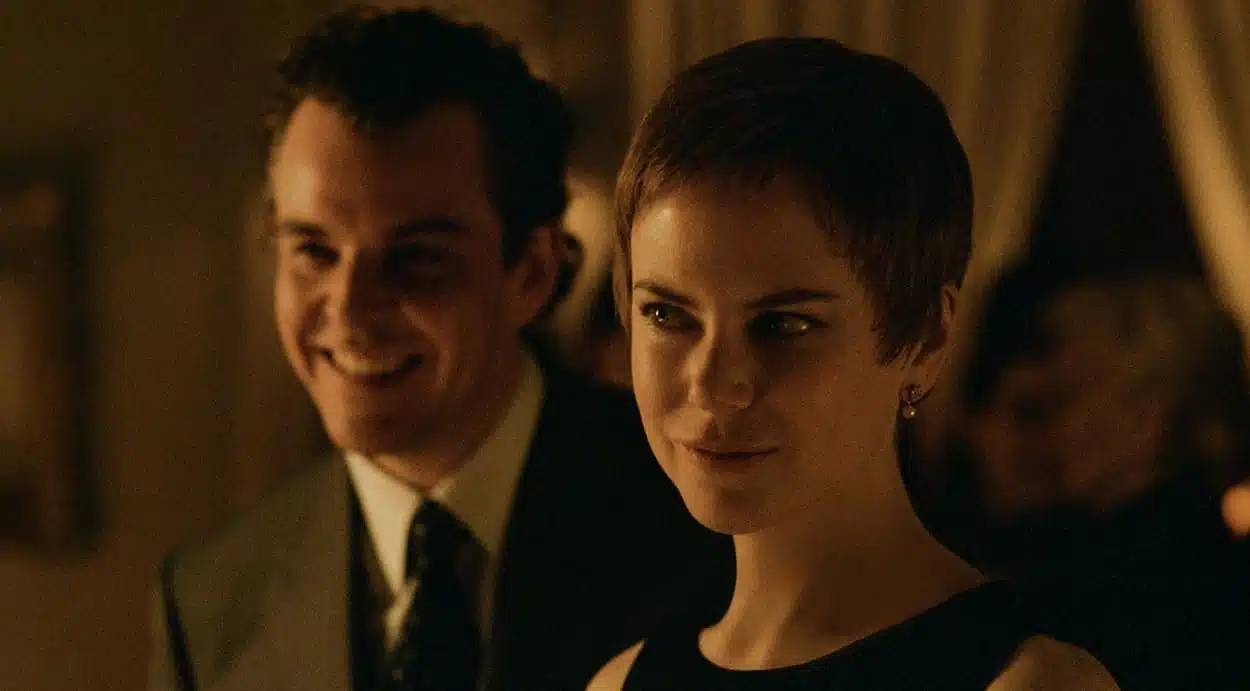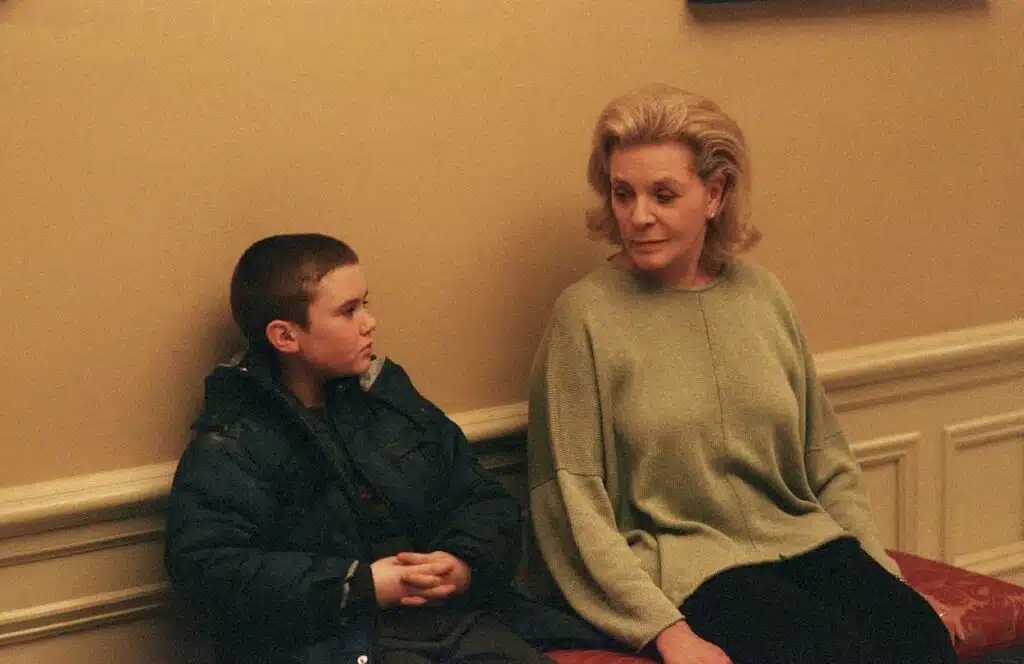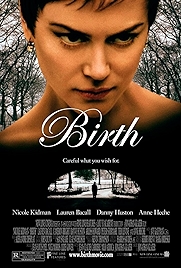Birth doesn’t quite sit with Jonathan Glazer’s other films. As I write (February 2024), his latest, The Zone of Interest, is attracting awards like an MRI scanner attracts spoons. As did Glazer’s debut, Sexy Beast, in 2000, and the film that followed Birth, 2013’s Under the Skin. As for Birth, it was booed at its premiere at the Venice Film Festival and its current rating on Rotten Tomatoes puts it around 40% “fresh”. Rotten, in other words.
People probably need to take another look. First thing: it’s brilliantly made. Second thing: it’s brilliantly acted, with a great cast all rising to the challenge. Third thing: the plot. This is where it does come slightly unstuck. People did not go a bundle on its psychologically melodramatic storyline about a widow (Nicole Kidman) who comes to believe that her dead husband’s soul or spirit now inhabits the body of a 10-year-old boy, also called Sean (Cameron Bright).
The hysterical female was a staple of many a 1940s “is she mad or is this happening?” thriller of a Gaslight-y ilk. That’s how Kidman plays the pixie-cropped Anna, as a febrilie, sensitive, girlish woman falling apart on the eve of her re-marriage – to Joseph, played with unctuous charm by Danny Huston.
Anna has not recovered from her first husband’s death ten years before and that’s really what Glazer’s film is about – abiding love – not ghosts from another realm. Anna is a woman still stuck with a kind of PTSD and it’s obvious to all round her that it’s trauma that’s causing this manifestation of her husband in the body of a young boy.
And it would be as simple as that if questions weren’t raised by the manifestation. Sean fooling Anna, if that’s what it is, can be easily explained away – she wants to be fooled. But Sean also convinces various family members, to different degrees, that he is the dead man returned. Is it actually plausible that a ten-year-old boy could do this? Out here in the real, non-melodramatic world, the answer is obviously no, but Cameron Bright’s performance is so spookily adult that it’s easy to go along with Glazer’s shonky plotting at this point and just let Birth do all the other things it’s doing so well.
The atmosphere, for one, which is a kind of Rosemary’s Baby-style depiction of Money New York inhabited by rarified creatures. This family, with Lauren Bacal’s Eleanor at its centre, operates like a coven, moving as a single unit, alighting on something new, picking it over and then processing it before moving on. Anna is in its grip as much as she is in the grip of her belief. In fact her conviction that Young Sean is Dead Sean operates as a kind of declaration of independence – how the family want Anna to marry Joseph, of whom they very much approve.
There’s a crucial scene where Anna realises that, against all the rules of everything, Sean is in fact her dead husband. Still stunned, immediately afterwards she attends a concert with Joseph and takes her seat. Glazer puts a camera on Kidman’s face and while the music swirls around the largely oblivious Anna, he leaves it there as Kidman signals the symphony of micro-emotions buffetting her camera. Glazer leaves it there some more. And some more, until Kidman herself appears to signal “Enough!” with a jerk of the head.
Kidman is so sensational she sets the tone for everyone else. Huston, Bacall, Allison Elliott, Peter Stormare, Arliss Howard, they’re all good. Anne Heche is not in it so much but has a pivotal role as the person who eventually explains it all, the Van Helsing in this strange story of the Undead.
Alexandre Desplat’s score is brilliant. There is some real Wagner on the soundtrack – at the concert, most fittingly – and Desplat’s Wagner pastiche undergirds the film’s more emotional moments, when aching strings tremble towards violently emotional resolution, and counterpoints that with stretches where a creepy music-box motif emphasises young Sean’s progress.
When the film came out, some were upset by a couple of moments. At one point a naked young Sean gets into a bath with his “wife”. At another, Anna, possibly teasing Sean, talks to him about a woman’s needs, a moment that manages to be both funny and unsettling.
The thoughtful and encyclopaedic critic David Thomson has this film on his list of “10 works of lost genius”, along with Melville’s La Silence de la Mer, Rossellini’s Europa 51 and Skolimowski’s Deep End. Is this a genius film, though, or a film with genius within it? Does it matter? It’s entirely gripping, even when it’s not entirely convincing.
Birth – Watch it/buy it at Amazon
I am an Amazon affiliate
© Steve Morrissey 2024


